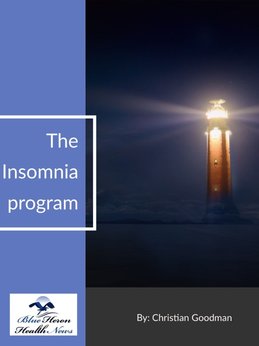
The Insomnia Program™ By Christian Goodman This program has been created by Christian Goodman, a natural health expert and sufferer of insomnia. He has used an audio program to let your fall sleep with the help of a bit of a hypnotic effect on your body.
How does insomnia affect overall quality of life?
Insomnia can have a profound impact on overall quality of life, affecting both physical and mental well-being. Here’s how insomnia affects various aspects of life:
1. Mental and Emotional Health
- Increased Stress and Anxiety: Chronic insomnia can heighten stress levels, as the inability to sleep creates anxiety about future nights of sleep deprivation. This can result in a vicious cycle where anxiety worsens insomnia.
- Depression and Mood Disorders: Insomnia is closely linked with depression. Lack of sleep can make it harder to regulate emotions, leading to irritability, mood swings, and feelings of sadness or hopelessness. Over time, chronic insomnia can contribute to or exacerbate mood disorders.
- Cognitive Impairment: Insomnia negatively affects cognitive functions like memory, concentration, and decision-making. People with insomnia may struggle with attention, problem-solving, and critical thinking, impacting their ability to function effectively at work or school.
2. Physical Health
- Weakened Immune System: Poor sleep weakens the immune system, making individuals more susceptible to infections and illnesses like colds or the flu. Chronic insomnia has been linked to an increased risk of more serious conditions such as heart disease, diabetes, and hypertension.
- Weight Gain and Metabolism Issues: Insomnia disrupts the balance of hormones that regulate hunger and satiety (like ghrelin and leptin). This can lead to increased appetite, cravings for unhealthy foods, and a greater risk of weight gain and obesity.
- Fatigue and Low Energy: Persistent lack of sleep leads to chronic fatigue, which reduces energy levels, physical stamina, and motivation to engage in daily activities, exercise, or hobbies.
3. Work and Productivity
- Reduced Work Performance: Insomnia leads to reduced alertness, attention to detail, and productivity at work. Individuals with insomnia may experience more errors, accidents, and missed deadlines. Sleep-deprived individuals are also more likely to be involved in workplace accidents, particularly in jobs that require precision and focus.
- Absenteeism and Presenteeism: Insomnia is a major cause of absenteeism (taking time off work) and presenteeism (being physically present but not functioning at full capacity). Both of these can negatively impact career progression and job satisfaction.
4. Relationships and Social Life
- Impaired Social Interactions: Insomnia often leads to irritability, impatience, and difficulty handling social situations, which can strain personal and professional relationships. People with insomnia may withdraw from social interactions or have difficulty engaging with others due to exhaustion and mood instability.
- Reduced Quality of Social Life: The fatigue and mood issues caused by insomnia may lead individuals to avoid social events, gatherings, or leisure activities. This can result in feelings of isolation and loneliness, further impacting emotional well-being.
5. Mental Resilience and Coping
- Difficulty Managing Stress: Lack of sleep reduces mental resilience, making it harder to manage daily stressors effectively. People with insomnia may feel overwhelmed more easily, which can affect their ability to cope with life’s challenges.
- Reduced Emotional Regulation: Sleep is essential for regulating emotions. Insomnia can cause heightened emotional responses, such as overreacting to minor inconveniences or challenges, and lead to increased frustration and negative thoughts.
6. Impact on Overall Life Satisfaction
- Decreased Quality of Life: Insomnia diminishes overall life satisfaction. People with chronic sleep difficulties often report a lower quality of life due to the persistent mental, physical, and emotional toll of not getting enough rest.
- Long-Term Health Risks: Chronic insomnia is associated with increased risk of developing serious long-term health issues, including cardiovascular disease, type 2 diabetes, obesity, and even a shorter lifespan.
7. Mental and Physical Recovery
- Impaired Recovery: Insomnia impairs the body’s ability to recover from physical exertion, illness, and stress. Sleep is crucial for muscle recovery, healing, and the consolidation of memories. Without proper sleep, the body and mind do not rejuvenate properly, leading to a prolonged recovery period from physical or mental strain.
Conclusion:
Insomnia has far-reaching consequences that extend beyond the immediate discomfort of sleepless nights. It can impair mental and emotional health, weaken the immune system, lower work performance, strain relationships, and diminish overall life satisfaction. Over time, chronic insomnia can lead to significant physical and psychological health risks, making it crucial to address and treat sleep difficulties for the improvement of overall quality of life.

The Insomnia Program™ By Christian Goodman This program has been created by Christian Goodman, a natural health expert and sufferer of insomnia. He has used an audio program to let your fall sleep with the help of a bit of a hypnotic effect on your body.